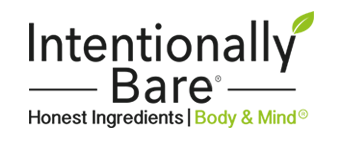Kicking the soda habit is often one of the hardest parts of adopting a healthier lifestyle. When making the transition to the keto diet lifestyle, many people choose to substitute diet soda for the sugary drinks they love. However, diet soda may be setting you up for failure. Here are six reasons why you should ditch diet soda.
Artificial Sweeteners May Change Your Gut Fauna
Gut fauna are the tiny microorganisms that help our body digest food. The chemicals in artificial sweeteners can change that fauna to make them more susceptible to insulin resistance. If you’ve ever gotten an upset stomach from taking antibiotics (which damaged your gut fauna) you understand the importance of a healthy gut. Not only can you develop painful or inconvenient symptoms, but you may not be absorbing the nutrients you consume correctly.
Diet Soda Can Deplete Your Body of Nutrients
Phosphoric acid, which gives diet soda that tangy taste, can deplete calcium reserves in your body. This can result in weakened bones and teeth. Your teeth are especially hard hit since phosphoric acid also attacks your enamel! It starts a vicious cycle of tooth decay that can be expensive to remedy.
Diet Soda Can Trigger Insulin Production
From the first sip, diet soda can make your body produce insulin. When your body produces insulin, you absorb more glucose into your cells. In other words, when you’re producing insulin, you’re not burning fat. If you haven’t eaten much before you start drinking diet soda, the resulting insulin production can make your body think that you’re hungry. Your blood glucose level may drop, causing you to feel sluggish, dizzy, or irritable; all conditions you may be tempted to treat with more caffeine.
Diet Soda Has Been Linked to Depression
In a landmark study conducted in 2014, the National Institutes of Health determined that diet soda was linked to depression. They found that frequent consumption of soft drinks was associated with an increased risk of depression, and that the link between depression and soft drinks was more evident when those drinks were artificially sweetened. While the study, which was co-sponsored by AARP, focused on older Americans, the effects may be the same for younger diet soda drinkers, too!
Diet Soda has No Nutritional Value
Part of embracing the keto lifestyle is changing your outlook on food. In our culture, we’ve changed the value of food. Food has become a part of the process of obtaining pleasure instead of part of the process of fueling our bodies. We focus on what tastes good, regardless of the value that it brings. If you are hoping to succeed with the keto way of eating, it’s essential that you change your relationship with food. You have to see the value of food as fuel and try to consume foods that add fuel to your body. It’s a hard mindset for some people to achieve. While diet soda has no calories, it can make you feel full without adding any nutritional value to your body. That means you aren’t drinking water, which your body actually needs.
Diet Soda May Increase Hunger Hormones
A study completed in 2016 suggests that the carbon dioxide in diet soda causes the body to produce a hormone called ghrelin. This hormone tells our brains that it’s time to eat. Ironically, part of changing our mindset about food includes listening to the signals that our body sends us; that means we should eat when we are hungry because our bodies should be sending us cues that are telling us that it needs fuel. However, when we drink diet soda, ghrelin sends the signal that we are hungry, so we eat, even if we don’t really need to. The mixed-up messages confuse us into thinking we are hungry. However, if the body doesn’t need the fuel we are providing, then that food just gets stored, as fat. Even worse, the fat may end up in our abdominal area; we know that belly fat is linked to a higher risk of heart disease.
I’ve mentioned that artificial sweeteners may actually keep you out of ketosis. It’s important to note that artificial sweeteners, like fat bombs, should be looked at as an occasional tool to help you work on your weight loss goals. When you are using artificial sweeteners on a regular basis, you may be setting yourself up for a more difficult keto journey.
If I want the occasional ‘pop fix’ I reach for one sweetened with stevia, which has no artificial colors or flavors, much like the brand Zevia.
I’m all for lazy keto. I think that so many people get hung up on the numbers aspect of tracking macros and getting the perfect ratio, and these things make keto harder than it needs to be. However, I’m confident that continuing to drink diet soda while you’re trying to change your mindset about food can end up being far more disastrous for you.
For many people, diet soda is a quick fix during that afternoon slump. You know the one I mean. It’s 2:15 and you’ve been working for hours. You’re stuck doing some repetitive task, and your brain is ready for a nap. That slump is real, and we’ve been schooled to believe that caffeine is the only fix for it. In truth, there are a number of other solutions to that brain fog and tiredness that creeps in every afternoon. I’ll examine some of the other ways in a future blog post, but exogenous ketones are a quick and easy solution in the short run!
Are you ready to get serious about getting healthier using the ketogenic diet? Scroll down and sign up for my newsletter to get the latest news from Intentionally Bare, as well as insights and tips to manage your health!
You got this!
Leta ~ Intentionally Bare
DISCLAIMER: The information in this blog is for educational and informational purposes only. The content in here is not intended to be a substitute for professional medical advice, diagnosis, or treatment. Always seek the advice of your physician or other qualified health care provider with any questions you may have regarding a medical condition. Never disregard professional medical advice or delay in seeking it because of something you have read or heard here.


